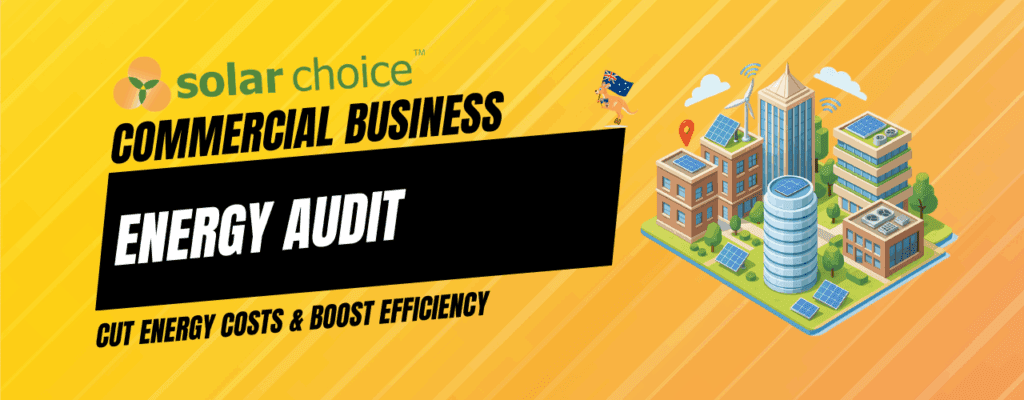Why Commercial Energy Audits Are Critical for Australian Businesses
Rising electricity and gas costs are a challenge for Australian businesses across every industry. From manufacturing facilities and retail outlets to healthcare centres, tourism operators, and office buildings, energy is one of the biggest ongoing expenses.
A commercial energy audit — also known as a business energy audit or energy efficiency audit — is the first step in understanding energy use, identifying inefficiencies, and implementing changes. When carried out properly, audits can deliver 5–50% reductions in energy consumption.
What Is a Business Energy Audit?
A business energy audit is a structured assessment of your facility’s energy use. In Australia, audits are conducted in line with AS/NZS 3598, ensuring consistent, reliable, and professional standards.
Typical areas reviewed include:
- Lighting systems and controls
- HVAC (heating, ventilation and air conditioning)
- Motors, pumps, and compressed air systems
- Building envelope and insulation / solar upgrades
- Electrical distribution and power factor
- Operating schedules and energy management practices
The final report provides actionable recommendations to reduce costs, lower consumption, and improve environmental performance.
Types of Energy Audits
Type 1: Walk-Through Assessment
- Visual inspection of your site and review of energy bills
- Identifies obvious inefficiencies and low-cost opportunities
- Best for small businesses or as a starting point for larger facilities
Type 2: Detailed Energy Assessment
- Includes equipment inventories, measurements, and financial analysis
- Provides specific recommendations with payback periods
- The most common audit type for commercial and industrial facilities
Type 3: Comprehensive Engineering Study
- Involves data logging, advanced modelling, and engineering analysis
- Identifies all possible energy-saving measures
- Designed for large industrial plants and complex commercial buildings
Which Industries Benefit Most from Energy Audits?
Manufacturing & Industrial Energy Audits
- Process optimisation and efficiency improvements
- Motor and drive upgrades
- Compressed air system optimisation
- Heat recovery systems
Retail & Commercial Energy Audits
- Lighting retrofits with smart controls
- HVAC optimisation for comfort and efficiency
- Refrigeration upgrades
- Energy management system integration
Healthcare & Aged Care Energy Audits
- Reliable performance of critical systems
- 24/7 operational efficiency
- Indoor air quality and energy balance
- Medical equipment optimisation
Hospitality & Tourism Energy Audits
- Guest comfort with reduced waste
- Efficient kitchen and laundry operations
- Pool and spa heating upgrades
- Building management system improvements
Office & Corporate Energy Audits
- Smart building technologies
- Tenant energy use management
- Base building efficiency upgrades
- Support for green building certifications
What to Expect During a Commercial Energy Audit
Most audits follow a five-stage process:
- Consultation – Define objectives, challenges, and business needs
- On-Site Assessment – Engineers conduct detailed inspections
- Data Analysis – Using recognised tools and benchmarks
- Report Delivery – A detailed report within 2–4 weeks
- Follow-Up Support – Guidance on implementation and next steps
Business Energy Audit ROI: What You Can Expect
Implementing audit recommendations typically leads to:
- 5–50% reduction in energy costs
- Payback periods of 1–5 years
- Lower maintenance costs and increased equipment reliability
- Improved workplace comfort and productivity
- Reduced carbon footprint and stronger sustainability credentials
Audit recommendations may also identify opportunities for solar PV and battery storage, which can further reduce demand charges and improve resilience. Even basic operational changes can deliver immediate savings, while equipment upgrades deliver longer-term returns.
Business Energy Assessment: A Practical First Step
Whether you’re managing an industrial site, a healthcare facility, or a commercial office, an energy assessment gives you clarity on where your energy dollars are going and what can be done to improve efficiency.
For many businesses, it’s not just about cutting bills — it’s about building resilience, reducing environmental impact, and ensuring long-term operational stability.
Final Word
A commercial energy audit is one of the most effective tools available for Australian businesses to manage rising energy costs. By following the structured approach of AS/NZS 3598 audits, owners and managers gain a clear roadmap: from quick, low-cost improvements through to major system upgrades.
For business leaders looking to make informed decisions, audits provide an unbiased foundation for energy efficiency, cost savings, and sustainable growth.
Commercial Energy Audit
- EVs After 2025: No Turning Back — What’s Coming in 2026 - 27 January, 2026
- QLD Solar Rebate for Renters: Landlords & Tenants Guide - 6 January, 2026
- Air Conditioners Compared Australia | Independent Homeowners Guide (2026) - 23 December, 2025
